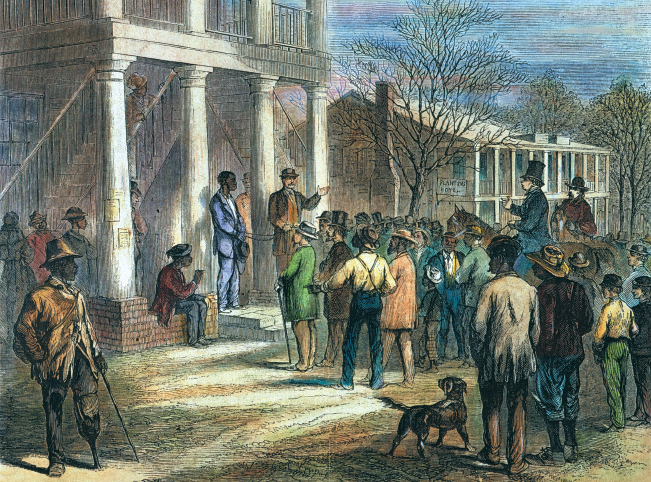How did the North respond to the passage of black codes in the southern states?
Printed Page 462

CHRONOLOGY
1865
- – Lincoln is assassinated; Andrew Johnson becomes president.
- – Black codes are enacted.
- – Thirteenth Amendment becomes part of Constitution.
1866
- – Civil Rights Act.
ABRAHAM LINCOLN DIED on April 15, 1865, just hours after John Wilkes Booth shot him at a Washington, D.C., theater. Chief Justice Salmon P. Chase immediately administered the oath of office to Vice President Andrew Johnson of Tennessee. Congress had adjourned in March and would not reconvene until December. Throughout the summer and fall, Johnson drew up and executed a plan of reconstruction without congressional advice.
Congress returned to the capital in December to find that, as far as the president and former Confederates were concerned, reconstruction was completed. Most Republicans, however, thought Johnson’s plan made far too few demands of ex-rebels. They claimed that Johnson’s leniency had acted as midwife to the rebirth of the Old South, that he had achieved political reunification at the cost of black freedom. Republicans in Congress then proceeded to dismantle Johnson’s program and substitute a program of their own.